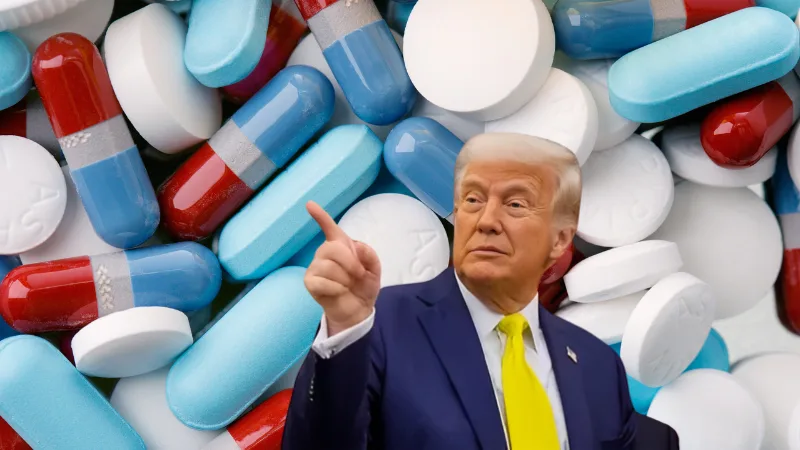On May 12, 2025, President Donald Trump signed a sweeping executive order aimed at reducing prescription drug prices in the United States. This initiative revives the “Most Favored Nation” (MFN) policy, which seeks to align U.S. drug prices with the lowest prices paid by economically advanced nations. The policy primarily targets Medicare Part B drugs—medications administered in clinical settings, such as cancer treatments and injectable therapies. By benchmarking against international prices, the administration anticipates potential cost reductions ranging from 30% to 80% .
Free Today: Passive Income Strategies for 2025
Smart investors know passive income isn’t just nice to have — it’s critical in times like these. This FREE guide reveals proven dividend stocks and REITs that can help you build steady income with less stress. Discover simple strategies to put your money to work while you sleep…
Download Your Free Guide NowKey Provisions of the Executive Order
- 30-Day Deadline for Drugmakers: The order sets a 30-day deadline for pharmaceutical companies to lower drug prices. If significant progress isn’t made within six months, the government may impose tariffs or other measures to enforce compliance .Reuters
- Expansion to Medicaid: Unlike previous iterations, the current policy extends beyond Medicare to include Medicaid, aiming to provide broader relief to low-income patients .The White House
- Direct-to-Consumer Sales: The order encourages pharmaceutical companies to sell drugs directly to consumers at internationally competitive rates, bypassing traditional intermediaries like pharmacy benefit managers (PBMs) .
Industry Response and Concerns
The pharmaceutical industry has expressed strong opposition to the MFN policy. Stephen J. Ubl, CEO of the Pharmaceutical Research and Manufacturers of America (PhRMA), criticized the proposal, arguing that it could undermine research and development, reduce investment in the U.S., and increase reliance on countries like China . Drugmakers contend that adopting foreign pricing models could jeopardize innovation and ultimately harm patients by limiting access to medications.WRAL.com
Market Reactions
Following the announcement, pharmaceutical stocks experienced initial declines but rebounded as the broader market rallied. Analysts at UBS warned that a wide application of the policy could result in an average net income decline of 15% for pharmaceutical companies due to significant potential cuts in profit margins.
Potential Global Implications
Trump’s policy could have far-reaching effects beyond U.S. borders. Analysts warn that pharmaceutical companies might respond by raising drug prices in other countries to offset losses in the U.S. market. This could lead to increased healthcare costs globally and strain international relations. Moreover, the policy’s implementation could disrupt the global pharmaceutical supply chain, affecting drug availability and pricing worldwide .
Legal and Political Hurdles
Trump’s previous attempt to implement a similar MFN policy in 2020 was blocked by a federal judge and subsequently rescinded during the Biden administration. Legal experts anticipate that the renewed policy will face similar challenges, including lawsuits from the pharmaceutical industry and scrutiny over its alignment with existing laws and international trade agreements .
Conclusion
President Trump’s renewed push for the MFN policy represents a significant effort to lower prescription drug prices in the U.S. by leveraging international pricing benchmarks. While the policy faces legal and industry challenges, its implementation could lead to substantial changes in the pharmaceutical landscape. The coming months will be critical in determining whether the MFN policy can withstand opposition and deliver on its promise to make medications more affordable for American patients.





